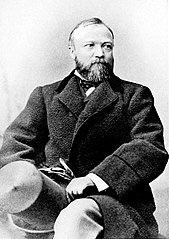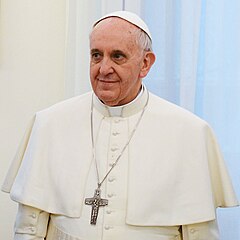Parable of the Laborers in the Vineyard, Rembrandt, 1637 (Acquired from Wikimedia Commons)
THE PROBLEM
Recently, Pope Francis again acquired media attention with his statements in the apostolic exhortation Evangelii Gaudium:
Just as the commandment “Thou shalt not kill” sets a clear limit in order to safeguard the value of human life, today we also have to say “thou shalt not” to an economy of exclusion and inequality. Such an economy kills. How can it be that it is not a news item when an elderly homeless person dies of exposure, but it is news when the stock market loses two points? ... Human beings are themselves considered consumer goods to be used and then discarded. (#53)Some commentators equated his comments with Marxism, interpreting him as one handing complete control of the markets to a government entity. Pope Francis, when later asked in an interview with La Stampa what he thought of being called a Marxist and about an economy that kills replied:
While the earnings of a minority are growing exponentially, so too is the gap separating the majority from the prosperity enjoyed by those happy few. This imbalance is the result of ideologies which defend the absolute autonomy of the marketplace and financial speculation. Consequently, they reject the right of states, charged with vigilance for the common good, to exercise any form of control. (#56)
The Marxist ideology is wrong. But I have met many Marxists in my life who are good people, so I don’t feel offended. ... The only specific quote I used was the one regarding the “trickle-down theories” which assume that economic growth, encouraged by a free market, will inevitably succeed in bringing about greater justice and social inclusiveness in the world. The promise was that when the glass was full, it would overflow, benefitting the poor. But what happens instead, is that when the glass is full, it magically gets bigger nothing ever comes out for the poor. This was the only reference to a specific theory. I was not, I repeat, speaking from a technical point of view but according to the Church’s social doctrine. This does not mean being a Marxist.Focusing on these quotes, you have two principles flowing from Francis: 1) That something is wrong with the world's current economic systems because the gap between the wealthy and poor continues to expand (Recent studies have asserted that the income gap is at its worst in 100 years); 2) a Marxist approach is not the answer.
I'd like to look at several other papal quotes expressing similar sentiments. This is not intended to be an exhaustive list of popes or even of quotes from each pope included, but at least a decent sample.
We begin with quotes echoing concern about the wealth-gap phenomenon.
In any case we clearly see, and on this there is general agreement, that some opportune remedy must be found quickly for the misery and wretchedness pressing so unjustly on the majority of the working class... The mischief has been increased by rapacious usury, which, although more than once condemned by the Church, is nevertheless, under a different guise, but with like injustice, still practiced by covetous and grasping men. To this must be added that the hiring of labor and the conduct of trade are concentrated in the hands of comparatively few; so that a small number of very rich men have been able to lay upon the teeming masses of the laboring poor a yoke little better than that of slavery itself. (Pope Leo XIII, Rerum Norum, 1891, #3)
To each, therefore, must be given his own share of goods, and the distribution of created goods, which, as every discerning person knows, is laboring today under the gravest evils due to the huge disparity between the few exceedingly rich and the unnumbered propertyless, must be effectively called back to and brought into conformity with the norms of the common good, that is, social justice. (Pope Pius XI, Quadragesimo Anno, 1931, #58)
Pius XI was not unaware of the fact that in the forty years that had supervened since the publication of the Leonine encyclical the historical scene had altered considerably. It was clear, for example, that unregulated competition had succumbed to its own inherent tendencies to the point of practically destroying itself. It had given rise to a great accumulation of wealth, and, in the process, concentrated a despotic economic power in the hands of a few "who for the most part are not the owners, but only the trustees and directors of invested funds, which they administer at their own good pleasure." (Pope John XXIII, Mater et Magistra, 1961, #35)
One must avoid the risk of increasing still more the wealth of the rich and the dominion of the strong, whilst leaving the poor in their misery and adding to the servitude of the oppressed. (Pope Paul VI, Populorum Progressivo, 1967, #33)
In this world crisis, more than two-thirds of the population are suffering from hunger, and the contrast in the standard of living between the rich and the economically poor countries is becoming greater. (Pope Pius XII, Guiding Principles of the Lay Apostolate, 1957, #14)
Our world also shows increasing evidence of another grave threat to peace: many individuals and indeed whole peoples are living today in conditions of extreme poverty. The gap between rich and poor has become more marked, even in the most economically developed nations. This is a problem which the conscience of humanity cannot ignore, since the conditions in which a great number of people are living are an insult to their innate dignity and as a result are a threat to the authentic and harmonious progress of the world community. (Pope Benedict XVI, Message for World Day of Peace, 2009, #1)Notice how un-novel is Pope Francis' concern about the disparity of wealth among persons. Notice also how human dignity is emphasized, especially if you click the links for each quote and read additional context.
GOVERNMENT TAKEOVER/MARXISM/SOCIALISM NOT THE SOLUTION
As noted in the opening quotes by Pope Francis, although markets have often resulted in lop-sided distribution of wealth, the Church's idea of seeking a just wage for all is not some type of governmental usurpation of the market. Pope Francis denied the Marxist ideology. And every other Pope quoted above likewise shied away from a strictly government-controlled or socialistic market.
To remedy these wrongs the socialists, working on the poor man's envy of the rich, are striving to do away with private property, and contend that individual possessions should become the common property of all, to be administered by the State or by municipal bodies. They hold that by thus transferring property from private individuals to the community, the present mischievous state of things will be set to rights, inasmuch as each citizen will then get his fair share of whatever there is to enjoy. But their contentions are so clearly powerless to end the controversy that were they carried into effect the working man himself would be among the first to suffer. They are, moreover, emphatically unjust, for they would rob the lawful possessor, distort the functions of the State, and create utter confusion in the community. (Pope Leo XIII, Rerum Novarum, 1891, #4)
Because of the fact that goods are produced more efficiently by a suitable division of labor than by the scattered efforts of individuals, socialists infer that economic activity, only the material ends of which enter into their thinking, ought of necessity to be carried on socially. ...[T]he higher goods of man, liberty not excepted, must take a secondary place and even be sacrificed to the demands of the most efficient production of goods. This damage to human dignity, undergone in the "socialized" process of production, will be easily offset, they say, by the abundance of socially produced goods which will pour out in profusion to individuals to be used freely at their pleasure for comforts and cultural development. Society, therefore, as Socialism conceives it, can on the one hand neither exist nor be thought of without an obviously excessive use of force; on the other hand, it fosters a liberty no less false, since there is no place in it for true social authority, which rests not on temporal and material advantages but descends from God alone, the Creator and last end of all things. If Socialism, like all errors, contains some truth (which, moreover, the Supreme Pontiffs have never denied), it is based nevertheless on a theory of human society peculiar to itself and irreconcilable with true Christianity. Religious socialism, Christian socialism, are contradictory terms; no one can be at the same time a good Catholic and a true socialist. (Pope Pius XI, Quadragesimo Anno, 1931, #119-120)
Whilst the propaganda of communism, today so widespread, is readily deceiving the minds of the simple and untutored … [ B]y subjecting everything to state ownership and control, they reduce the dignity of the human person almost to zero. ... The Church has condemned the various forms of Marxist Socialism; and she condemns them again today, because it is her permanent right and duty to safeguard men from fallacious arguments and subversive influence that jeopardize their eternal salvation. … The dignity of the human person then, speaking generally, requires as a natural foundation of life the right to the use of the goods of the earth. To this right corresponds the fundamental obligation to grant private ownership of property, if possible, to all. Positive legislation, regulating private ownership may change and more or less restrict its use. But if legislation is to play its part in the pacification of the community, it must see to it that the worker, who is or will be the father of a family, is not condemned to an economic dependence and servitude which is irreconcilable with his rights as a person. (52) (Pope Pius XII, Evangelii Praecones, 1951, #49, 52)
While, through the concrete existing form of Marxism, one can distinguish these various aspects and the questions they pose for the reflection and activity of Christians, it would be illusory and dangerous to reach a point of forgetting the intimate link which radically binds them together, to accept the elements of Marxist analysis without recognizing their relationships with ideology, and to enter into the practice of class struggle and its Marxist interpretations, while failing to note the kind of totalitarian and violent society to which this process leads. (Pope Paul VI, Octagesima Adveniens, 1971, #34)
Pope Pius XI further emphasized the fundamental opposition between Communism and Christianity, and made it clear that no Catholic could subscribe even to moderate Socialism. The reason is that Socialism is founded on a doctrine of human society which is bounded by time and takes no account of any objective other than that of material well-being. ... Thus Pius XI's teaching in this encyclical can be summed up under two heads. First he taught what the supreme criterion in economic matters ought not to be. It must not be the special interests of individuals or groups, nor unregulated competition, economic despotism, national prestige or imperialism, nor any other aim of this sort. On the contrary, all forms of economic enterprise must be governed by the principles of social justice and charity. (Pope John XIII, Mater et Magistra, 1961, #34, 38-39)
[W]e have to add that the fundamental error of socialism is anthropological in nature. Socialism considers the individual person simply as an element, a molecule within the social organism, so that the good of the individual is completely subordinated to the functioning of the socio-economic mechanism. ... A person who is deprived of something he can call "his own", and of the possibility of earning a living through his own initiative, comes to depend on the social machine and on those who control it. This makes it much more difficult for him to recognize his dignity as a person, and hinders progress towards the building up of an authentic human community. ... The Church acknowledges the legitimate role of profit as an indication that a business is functioning well. When a firm makes a profit, this means that productive factors have been properly employed and corresponding human needs have been duly satisfied. ... Profit is a regulator of the life of a business, but it is not the only one; other human and moral factors must also be considered which, in the long term, are at least equally important for the life of a business. (Pope John Paul II, Centesimus Annus, #13, 35)
While it has been rightly emphasized that increasing per capita income cannot be the ultimate goal of political and economic activity, it is still an important means of attaining the objective of the fight against hunger and absolute poverty. Hence, the illusion that a policy of mere redistribution of existing wealth can definitively resolve the problem must be set aside. In a modern economy, the value of assets is utterly dependent on the capacity to generate revenue in the present and the future. Wealth creation therefore becomes an inescapable duty, which must be kept in mind if the fight against material poverty is to be effective in the long term. (Pope Benedict XVI, Message for World Day of Peace, 2009, #11)You can see the pattern among these citations recognize both the folly of socialist or communist ideologies which strip human beings of their proper dignity in favor of a collective State. You also see the recognition of legitimate commerce and wealth creation have a place in a just economic system. Each of these Popes have an emphasis in their writings on the dignity of a human person. It is this which rises above all other considerations, be they profits or prudent state regulations. The human person must be seen as the most valuable asset in the equation ahead of the rest.
In the La Stampa interview, Pope Francis said of his exhortation, "There is nothing in the Exhortation that cannot be found in the social Doctrine of the Church." Just as he referred listeners to the Catechism when speaking on marriage, he is referring listeners to the Church's precedent on social doctrine. He thus should be read in concert with the heritage of his predecessors. This can help one see why being critical of a de-humanizing attribute of capitalism, such as commoditizing employees, is not automatically tantamount to proposing some communist, socialist, or Marxist solution. Rather, the human being must be held paramount when considering whatever economic system or adjustments may come.






